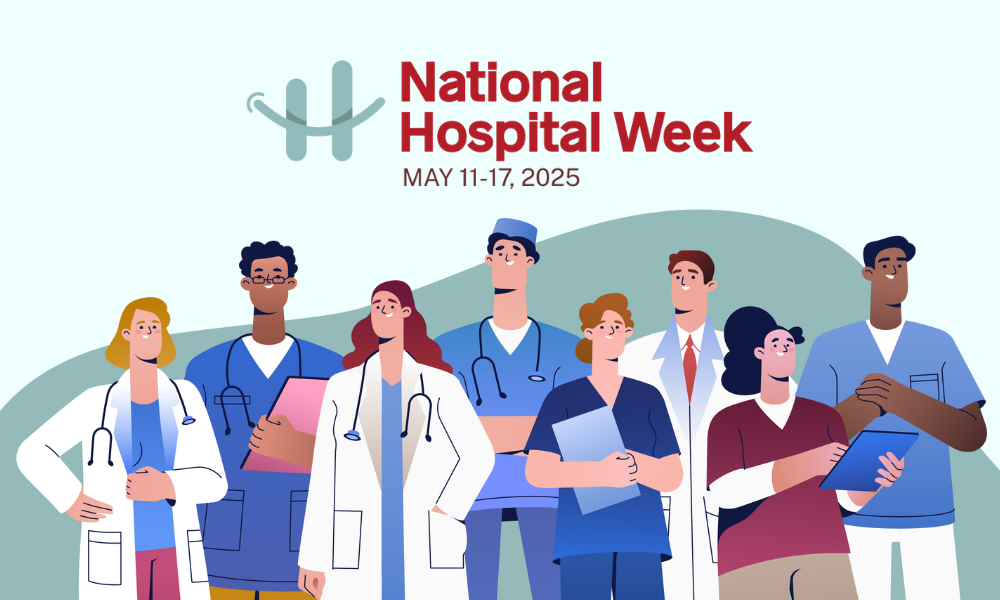Although COVID-19 presented a “huge reality check” for locum tenens staffing firms over the past couple of years, those companies have come back stronger than before. In fact, some industry observers think 2022 just might be the industry’s best year ever.
“Our year-over-year revenue increase looks to be the largest in company history,” Hayes Locums Co-Founder Ryan Scharer says. While his agency and others did have to reduce staff in the pandemic’s early days, he emphasizes that the hard decisions it forced have improved the firm’s situation overall.
Equally optimistic, Aya Healthcare Executive Vice President Sophia Morris notes, “We expect to see exponential growth in the locum tenens business this year.” She views the pandemic as a catalyst for getting Aya to where it was headed already and prompting the growth of the company’s subsidiary, Aya Locums.
While his company avoided laying anyone off during the crisis that lasted well into 2021, Interim Physicians CEO Tim Hand says his team did hire more strategically.
Citing the “huge rebound” Interim has seen in 2021 and 2022, Hand says he’s “bullish for 2022. We’re up 20% over 2021 at not-quite-the-midpoint of the year–way beyond Staffing Industry Analysts’ projection of a 7% revenue increase.”
Having just marked Floyd Lee Locums’ five-year anniversary, CEO Natasha Lee reports that, with three-year revenue growth of 721%, the firm has just landed at #883 on Inc. magazine’s annual ranking of America’s fastest-growing private companies, a 42-place jump from its 2021 ranking. The company continued to hire over the past two years, growing to more than 65 internal employees since its inception.
“Our year-over-year revenue increase looks to be the largest in company history.”
— Ryan Scharer, Co-Founder, Hayes Locums
Perspective: Working the Numbers
SIA’s US Staffing Industry Forecast published in May 2022 estimates that the healthcare staffing industry grew 85% in 2021 to $39.8 billion, up from $21.5 billion in revenue for 2020.
The increase was driven in part by a 13% increase in revenue for locum tenens staffing.
“Regarding locum tenens, our projection of $4.7 billion in 2022 represents a year-over-year increase of 7%,” SIA reported. “Locum tenens, which includes the advanced practice nurses and physician extenders, is the only clinical segment that SIA projects will see an increase in 2022.”
“For 2021, SIA data sources show that when COVID peaked, locum tenens declined; however, once surges quieted, increases in temporary physician volume and rates became apparent. Given this pattern, SIA expects that contingent mid-and senior-level providers will see healthy growth for 2022 and 2023,” the May forecast concluded.
In its August 11 Healthcare Staffing Report, SIA explains, “The past two years have brought unprecedented growth in the US healthcare staffing industry, as healthcare providers have turned to staffing suppliers for help with crisis needs related to the pandemic and also as a vital source for workers in an environment where job openings far exceed the supply of readily available candidates.”
Responding and Replicating Quickly
LocumsMart online consultant Robin Vovk observes that, in the long run, “COVID-19 changed the entire industry by growing business exponentially for almost every company I am familiar with. You would have to try to fail” in the market it created. “Locum tenens is more widely accepted as a solution for staffing gaps–and it’s also looked upon as more of a recruitment resource,” she says.
Vovk adds, “The record-breaking growth of the locum industry is causing a mass explosion of small agencies popping onto the scene.
“At Locumsmart, literally every day a new agency I have never heard of is reaching out about signing onto the platform. The market will be inundated with agencies; hence, [healthcare-facility] recruiters and physicians will be bombarded more than ever with agency communication and reach-out.”
“COVID-19 changed the entire industry by growing business exponentially for almost every company I am familiar with. You would have to try to fail” in the market it created.
— Robin Vovk, Online Consultant, LocumsMart
Fortunately, Aya Healthcare formed Aya Locums division with its acquisition of Locums Unlimited in June 2018, which allowed the company to “gather some steam” in the business line before COVID-19 hit.
Aya’s Morris concurs with industry colleagues that, ultimately, the pandemic “offered a huge opportunity to grow and change. We had to shift into a rapid-response team, aggregating tens of thousands of providers very quickly.”
Consulting and Partnering Amid Chaos
Thinking back to the pandemic’s early days and how her company has flourished since, Lee of Floyd Lee Locums shares that in her 20 years in healthcare staffing, she never thought she’d see considerable numbers of physicians getting fired or quitting medicine altogether.
“The biggest challenge was seeing the whole healthcare industry shut down and then our constant battle to keep up with where and how great the coverage needs were.
“We learned to truly partner with our clients to provide for their expanded needs in surviving this crisis. We placed specialties and provider types we hadn’t placed before and worked crazy hours to get it all done. There were times when it felt like we were cats chasing little red laser pointer dots, but we absolutely solidified our relationships in the process.”
Lee says her company “has reinvented our organizational model multiple times” since she and Floyd Lee Locums Board Chairman Matt Floyd founded the company in 2017. “COVID-19 has been extremely disruptive, but in the end the pandemic created resilience.”
Echoing that sentiment, Scharer remembers COVID-19’s early days as “a huge reality check that you don’t forget: doctors sitting on the sidelines, healthcare staff getting furloughed and contracts being canceled or renegotiated.”
He recalls how “there seemed to be more empathy and graciousness on both sides of the client-agency equation, creating stronger partnerships going forward.”
“It made us appreciate that what goes up can also come down,” Interim’s Hand says. “We learned how much healthcare facilities depend on elective surgeries. Physicians were leery about traveling and quarantining, and airline service was unpredictable at best. We really didn’t shift out of ‘COVID mode’ until the second quarter of 2021, so we experienced more than a year of chaos across both healthcare and the staffing industry.
“COVID-19 has been extremely disruptive, but in the end the pandemic created resilience.”
— Natasha Lee, CEO, Floyd Lee Locums
“Many of our specialties were nearly shut down for close to nine months, so when things began to return to normal, we saw huge spikes in demand” that continue as of this writing, Scharer says. “Now we have more demand than we can supply solutions for.”
Vovk describes the “feast-or-famine” situation like this: “At first demand dropped suddenly as elective surgeries were canceled and departments shut down. When services reopened it was an onslaught of backlog that has still not been worked through.”
Embracing Technology and Working from Home
Focusing on the plights of clients and providers, Morris notes: “At the beginning of the pandemic, CRNAs and other practitioners were getting laid off and many pivoted to work (like COVID-testing) that was outside of their normal responsibilities. Then, as surgeries came back, facilities didn’t have the staff, so both locum tenens and telehealth took off.”
Floyd Lee Locums’ Lee sees it as an advantage that her company was already “virtual” before the country locked down in early 2020. “ We didn’t have to move people around or work harder at connecting and communicating because we already knew how to make it work,” she says, adding that the company continued to hire in 2020 and 2021.
Acknowledging that COVID-19 “forced the work-from-home issue,” Hand notes, “The technology was there before we needed it, so transformation happened quickly.” As a result, “technology budgets have increased across the industry,” he says.
Also, he suggests the shift to virtual work prompted companies like Cross Country Locums to reduce their real estate footprints–allowing them to reduce debt loads and increase earnings.
Vovk’s organization was a case in point: “We closed all LocumsMart offices nationwide… forever. This has allowed our company to draw from a larger talent pool without geographic restrictions. We also dedicate a lot more time to work than previously because we typically added our commute time into our work days.”
While underscoring that “Hayes Locums’ technology is second-to-none,” Scharer notes, “One of our core beliefs is that we do our best for clients and clinicians when we are in the office.”
As Hand pointed out, “It’s very hard to create a culture with everyone remote, and some people just aren’t cut out for it.”
“At the beginning of the pandemic, CRNAs and other practitioners were getting laid off and many pivoted to work (like COVID-testing) that was outside their normal responsibilities. Then, as surgeries came back, facilities didn’t have the staff, so both locum tenens and telehealth took off.”
— Sophia Morris, Exec. Vice President, Aya Healthcare
Focusing Internally and Incentivizing Associates
So how does a virtual startup like Floyd Lee manage it?
For starters, the agency launched a confidential 24/7, non-denominational telehealth chaplain service for employees, logging roughly 137 confidential discussions in the first quarter of 2022. The company looks to offer a similar service to clinicians in the not-too-distant future.
In addition, Floyd Lee provides health insurance at no cost for all full-time employees and their families–an anomaly in today’s world of work.
Lee says that, now that the pandemic’s most intense days appear to have passed, her team is getting back to nurturing relationships and focusing on the long term. “We’ve had to retrace our initial path and get our core business back,” she says, explaining that that business resides in “traditionally high-demand specialties” like family and internal medicine, hospital medicine, neurology, anesthesia, and psychiatry. “But our team has shown that they’re up to the challenge.”
Gaining Competitive Advantage
Vovk says the pandemic also changed LocumsMart’s sales structure: “Before the pandemic, all presentations were in person; now clients prefer Zoom calls, which allows us to present our solution to at least double the number of clients we could previously. Our revenue tripled from 2019 to 2021 from pre-pandemic levels as well, and it continues to grow.
“I believe the locum staffing industry will follow the same path travel nursing did from 2000 to 2010. The number of agencies went from 20 to 2,000 and, in the same breath, the number of VMS / MSP solutions being utilized went from 0 to 80%.
“I sense more agencies are adding their own tech capabilities to be competitive and trying to find strategic partners as opposed to being everything to everyone. IT solutions will only grow until locum tenens as we know it becomes as obsolete as the encyclopedia someday.”
[Locumpedia bets the other experts quoted herein would love to debate this point, 
For example, Morris believes the new digital staffing platform Aya Locums will introduce next month will boost the company’s ability to “disrupt” the status quo: “Locum tenens has always been about relationships, so our recruiters were a bit hesitant about the concept at first,” she says.
“With our new ‘My Aya’ platform, physicians and advanced clinicians can access all the jobs and pay rates without a recruiter being involved.” While providers will be able to apply to jobs directly, a recruiter will intercede in presenting candidates to healthcare-facility clients.
“Essentially, this transforms a recruiter into more of a career coach” than a salesperson for a position that needs filling, Morris says.
She shared that Aya Healthcare “hired like crazy” during the pandemic, growing from some 1,800 associates pre-pandemic to almost 6,000 today. Aya’s teams aren’t specialty-focused now which allows recruiters to have comprehensive knowledge and experience. Morris says they seem to appreciate the variety of challenges that a broad focus allows.
In fact, “What we’re seeing across the board–among clients, clinicians and employees–is the desire for greater flexibility.”
“The era of flexibility is here.” Lee says, pointing out that, “In most cases, facilities are grateful to have the relief; they’ve become more comfortable bringing in contingent workers. And the more locum agencies educate clients about how to incorporate locum tenens into their staffing plans strategically, the more they appreciate its advantages. They realize we can help them solve problems.”
Changing Attitudes Among Clients
Long gone, it seems, are the days when temporary physicians are viewed as “less than” permanent providers.
“Since I started working in the locum tenens industry in 2012, it has almost done ‘a 180-degree shift,’ “Vovk says. “More providers are working as locum tenens and it’s more accepted as legitimate work.”
“To be a locum physician or advanced practitioner, you have to be much more qualified than a staff clinician,” Lee says. “It takes a special skill set to adapt quickly to new geographical locations, practice settings, and staff expectations.”
“Cultural fit, work quality, and work ethic are much more important today than they were a few years ago. Plus, hiring locum tenens physicians is preferable to burning out permanent providers.”
— Tim Hand, CEO, Interim Physicians
Not to mention the rigorous credentialing process to which each provider must submit before setting foot in each new healthcare setting where they accept an assignment.
“Cultural fit, work quality, and work ethic are much more important today than they were a few years ago,” Hand says. “Plus, hiring locum tenens physicians is preferable to burning out permanent providers.”
Putting Physicians & Advanced Clinicians into the Driver’s Seat
It turns out that healthcare-provider facilities aren’t the only ones that are more accepting of locum tenens as a career option.
Considering how COVID-19 has affected healthcare and how impressively the locum tenens industry has bounced back, Hand surmises, “What’s happening in healthcare today is only increasing clinicians’ willingness to work on a locum basis.”
“There’s a lot more movement among clinicians these days. More of them are willing to consider the locum tenens lifestyle,” Scharer offers. “Newer physicians are more oriented toward work-life balance. Locum tenens allows providers to live where they want and earn more in less time.”
Perhaps acknowledging that increasing “high tech” dependence calls for increasing “high-touch” solutions across all audiences, Morris believes the pandemic has prompted both clients and agencies to focus more on protecting and showing appreciation for the clinicians they hire and with whom they work.
As Hayes’ Scharer notes, “There’s still a shortage of physicians and advanced practitioners that will grow with our aging population and ongoing physician burnout. There will continue to be a large demand for filling that gap.”
Validating that theory, Lee suggests, “As healthcare continues to morph to meet patient and community needs, the future of locums is bright. The partnership and possibilities our discipline provides ensure that continuum of care remains intact—and that high-quality clinicians can find the professional growth opportunities that enliven their lives through locum tenens at every stage of their careers.”
Seeming to speak for both her company and the industry, Lee described the outlook for locum tenens as “nothing but upside.”
Related
Can “Concierge” Locum Tenens Service Conquer Clinician Burnout? Floyd Lee Locums Aims to See
As almost anyone who followed healthcare at all in the past year or so knows, physician and healthcare worker burnout has reached critical mass in the past few years.
A February 2022 article in Becker’s Hospital Review highlighting Medscape’s 2022 Physician Burnout and Depression Report indicated that, “Emergency medicine physicians have the highest rates of burnout among all physician specialties.
“More than 13,000 physicians across 29 specialties were surveyed between June 29 and Sept. 26, 2021. Across all specialties, 47 percent reported feeling burned out last year.”
This trend likely prompted Floyd Lee Locums to introduce its ‘respite campaign’ a few months ago:
“Throughout the pandemic, you’ve been working at an unprecedented pace and we recognize that you may be looking for a different work style or a new team to support you,” the agency’s website beckons, “We also know you deserve some respite, so Floyd Lee Locums is awarding one healthcare provider [each quarter] with an all-expenses-paid luxury vacation (valued at $6,000).
“Each assignment and activity is a way to earn more chances to win. Start by submitting your information or reading more below.”
Programs like this are part of Floyd Lee’s concierge approach to clients and clinicians in the locum tenens space, Lee says.
Making sure the fridge is stocked when a doctor arrives at a remote location and offering 24/7 support with expedited response times for clients are just two examples of what the firm’s commitment entails.
To entice a New York City physician, who didn’t drive, to accept a remote assignment, Floyd Lee Locums bought him a bicycle for the gig. The dad of a nearby Floyd Lee Locums employee assembled and delivered it to make the deal work for everybody involved.
To borrow an affirmation pulled from a Dove Chocolate wrapper, “Don’t stop until you’re proud.”








